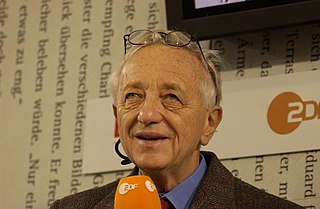A Quote by Kenneth Branagh
I feel more Irish than English. I feel freer than British, more visceral, with a love of language. Shot through with fire in some way. That's why I resist being appropriated as the current repository of Shakespeare on the planet. That would mean I'm part of the English cultural elite, and I am utterly ill-fitted to be.
Related Quotes
James Joyce's English was based on the rhythm of the Irish language. He wrote things that shocked English language speakers but he was thinking in Gaelic. I've sung songs that if they were in English, would have been banned too. The psyche of the Irish language is completely different to the English-speaking world.
I found cause to wonder upon what ground the English accuse Americans of corrupting the language by introducing slang words. I think I heard more and more different kinds of slang during my few weeks' stay in London than in my whole "tenderloin" life in New York. But I suppose the English feel that the language is theirs, and that they may do with it as they please without at the same time allowing that privilege to others.
I think I went through early years of my career sort of thinking, "Well, maybe I'm just not British enough." And I always remember my father saying to me, "Don't think you're English, because however English you feel, some Englishman is going to remind you that you're not." Now, for him it must have been a much more acute experience, because he immigrated to England. I was born there, so I kind of felt I had the right to assume that I was British, but it's true. The English are a very warm and welcoming people, but there's a streak in there that reminds you, occasionally.
Shakespeare is absolutely big in Africa. I guess he's big everywhere. Growing up, Shakespeare was the thing. You'd learn monologues and you'd recite them. And just like hip-hop, it made you feel like you knew how to speak English really well. You had a mastery of the English language to some extent.
I realized over the years if I'm writing about humor, irony, satire, I much prefer to do that in English. And if there is sorrow, melancholy, longing, I much prefer to do that in Turkish. Each language has its own strength to me, and I feel connected and attached to both Turkish and English. I dream in more than one language.
I am a writer who is definitely working with a specific language and more than English, that language is American. And I work very much in idiom and am very interested in the play of different kinds of rhetoric, whether it is the more high-flown stuff that reeks of age. I love to juxtapose something like that with something more current or urgent. I am always interested not in America by itself, but America as an idea and how that idea has changed over time, in the eyes of the rest of the world and in the eyes of Americans.
I believe I'm very conscious of exactly what I'm doing. I'm auditioning lines of dialogue, and I'm interrogating whether the lines would translate from Russian into English the right way. The English that results can perhaps seem somewhat more formal than colloquial, but not so formal as to feel academic.
I think in Arabic at times, but when I'm writing it's all in English. And I don't try to make my English sound more Arabic, because it would be phony - I'm imagining Melanie Griffith trying to do a German accent in Shining Through. It just wouldn't work. But the language in my head is a specific kind of English. It's not exactly American, not exactly British. Because everything is filtered through me, through my experience. I'm Lebanese, but not that much. American, but not that much. Gay, but not that much. The only thing I'm sure of, really, is that I'm under 5'7".




































